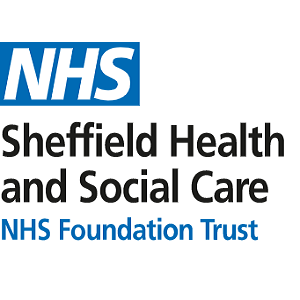Drug & Alcohol Rehab in Sheffield

How Does Rehab Work?
Rehab involves the support services and therapies that individuals with drug and/or alcohol addiction receive to overcome addiction and subsequent relapse. After a medical assessment and detox are completed, individuals will receive addiction treatment in the form of therapy. Treatment is made up of therapy from a professional counsellor, the attendance of group meetings as with a 12 Step programme, and the option of inpatient or outpatient rehabilitation. Inpatient rehab services require that clients live at the residence or centre for the period of therapy. Outpatients will attend therapy by counselling or meetings but will not stay at the facility. Consultation with a medical expert as well as an individual assessment can help evaluate if inpatient or outpatient services are suited to your needs.
What Happens During Residential Rehab?
The choice to seek rehab for drug and alcohol addiction is really a brave one and can be supported with individualised rehabilitation services. We provide a breakdown of what you can expect during the process of drug and alcohol rehab.
Rehab occurs in phases. It starts with a medical assessment. Individuals must be professionally assessed to help staff understand the nature of your dependence, its history and comorbid disorders (such as anxiety or depression). The information obtained from the assessment is used to create a bespoke therapy programme for you. Because every person is different, a personalised treatment plan will help provide a more tailored programme that meets your needs and requirements.
The next stage of a rehab plan is detox. Detoxing from substances requires the removal of the drug or alcohol from the body, typically over a period of time that limits withdrawal symptoms. Detox should ideally be monitored professionally to assist those with withdrawal symptoms. When the substance is removed from your system, the next stage of treatment begins (therapy).
Rehabilitation includes meeting with a counsellor for private & group sessions, participation in skill-building activities as with an inpatient or residential rehab, or group meetings that are common with outpatient 12 Step programmes. We look at the different phases of rehab in more detail.
1. Assessment

A complete medical assessment is the first step to receiving the appropriate treatment in rehab. If you are looking into residential rehab, you can expect a telephone assessment by an admissions team. The telephone assessment will provide the treatment facility with the information needed to develop a unique treatment plan. The medical support staff will also have the information to manage patients through the process of detox.
Should you require the assistance of a medical professional to manage addiction, seek a medical assessment prior to treatment commencing. Assessments are an important part of choosing the right therapy and whether inpatient or outpatient programmes are most suitable for your healthcare goals.
2. Detox

Detox is a process in which substances such as drugs and alcohol are safely removed from the body. It is overseen by professionals in a residential facility.
Detox is important where substance abuse and dependency are present. It should be managed by experienced and knowledgeable medical staff to reduce uncomfortable and severe withdrawal symptoms. For those who go through withdrawal symptoms, there is a higher risk of relapsing if not managed within a rehab clinic. In a residential setting, qualified staff may offer medical treatment to minimise difficult withdrawal. The approach for therapy, once detox is finished, is determined by the medical assessment.
3. Therapy

Therapy includes the one-on-one and group sessions you will attend with a qualified therapist, counsellor, and support staff. Treatment is delivered in both a residential rehab and an outpatient service. The direction for therapy will depend on individual circumstances.
Step by Step Process for Residential Rehab
To understand your medical and mental health history.
Arrange a suitable date to begin your journey to recovery.
Begin the managed withdrawal process from substances including alcohol.
To understand the root cause of addiction and how to overcome it.
Aftercare is provided to help manage the risk of relapse.
To help heal the wounds that addictive behaviour has caused others.
Find your Nearest Rehab Centre in Sheffield
The nearest rehab centre is Linwood House – Drug Rehab & Alcohol Rehab South Yorkshire.
Address: Linwood House – Drug Rehab & Alcohol Rehab South Yorkshire, Wensley Rd, Barnsley S71 1TJ
Call 0333 4444 432 to discuss your alcohol or drug rehab requirements and any other questions you may have about the process of residential rehab.
Outpatient Addiction Services in Sheffield
Inpatient or outpatient options for addiction can be determined by your budget requirement & individual circumstances. Nevertheless, it is an individual process that requires commitment and awareness to succeed. To help you understand these different processes, we look at outpatient addiction treatment services compared to residential treatment.
An outpatient programme requires that clients attend weekly therapy sessions. You remain at home and visit the therapist, counsellor, or group leader to attend sessions. It also allows one to continue to work and attend to family commitments while receiving support and intervention.
PrivateOutpatient care involves individual counselling with a therapist. You are required to travel to the therapist and engage in hour-long treatment sessions. Apart from private therapy, you can also find free services from charities and government-backed organisations that address substance addictions.
NHS Free Addiction Services in Sheffield

44 Sidney Street Matilda Street entrance Sheffield South Yorkshire S1 4RH
Website
29-31 Collegiate Crescent Broomhall Sheffield South Yorkshire S10 2BJ
WebsiteThe Benefits of Outpatient Services
Private Outpatient programmes will involve individualised care strategies to address the specific problems and difficulties that are leading to addictive behaviours. Outpatient assistance is commonly sought by individuals who have family commitments or those who need to work full-time. Outpatient programmes are more affordable than residential treatment.
The Challenges of Outpatient Services
Because one remains in the same environment and exposed to the same triggers, there may be a higher risk of relapse and failure to complete an outpatient programme. Although the NHS and other UK-based charities provide free addiction services, treatment is not tailored to the individual’s needs and waiting lists are to be expected.

How Much Does Rehab Services Cost in Sheffield?
Residential drug and alcohol addiction treatment can usually cost between £1500- £4000 a week. Private addiction treatment within a residential setting may not be accessible for everyone. However, charity and government organisations deliver free or low cost programmes that those struggling with addiction can benefit from.
The NHS and charities such as Turning Point offer free addiction treatment services for those having difficulties with drug and alcohol addiction. It is worth noting that Turning Point requires a self-referral. You can also find free support groups provided by Alcoholics Anonymous, Cocaine Anonymous, and Narcotics Anonymous very useful for long-term recovery from addiction.
Support Groups in Sheffield

Sheffield Step
Hillsborough Baptist Church, 21 Hawthorn Rd S6 4LG

Sheffield Hillsborough
Baptist Church Hall, Hawthorn Rd, Hillsborough S6 4LG

Sheffield Lunch Online
Central United Reformed Church, 60 Norfolk St S1 2JB
The Pros and Cons of Seeking Treatment in Your Local Area
Pros
1. You are familiar with the area which may provide a layer of comfort/safety.
2. Family or friends can easily travel to visit or are close by.
3. You may save on the costs of travelling long distances for addiction treatment, or free addiction services may only be offered in your hometown.
Cons
1. A local environment means access to drug dealers or other triggers. This is more of an issue if you opt for outpatient programmes.
2. Failing to consider locations outside your local area could equate to a missed opportunities for more valuable and rewarding programmes.
3. Addiction treatment services that are close by do not always offer the best standard of rehab.
If you are unsure of how to look for a rehab service you can trust, consider the CQC. The CQC website offers listings of rehabilitation services and organisations that are ranked according to the standard of its services.
Frequently Asked Questions
What’s the typical duration of rehab programmes in Sheffield?
Rehab programme lengths vary, typically spanning 30 to 90 days. Substance rehabilitation guides you to programmes that fit your needs.
How do I find affordable drug and alcohol rehab centres in Sheffield?
Contact Substance Rehabilitation at 03334444432; we help you find budget-friendly options while ensuring quality care.
Why is aftercare important in Sheffield’s drug and alcohol rehab?
Aftercare, crucial for sustained recovery, offers ongoing support. Substance rehabilitation connects you to aftercare services post-rehab.
Where can I get help for a loved one’s addiction in Sheffield?
Call Substance Rehabilitation at 03334444432; we assist in finding suitable rehab options, supporting your loved one’s recovery.
Are there specialised rehab programmes for different age groups in Sheffield?
Yes, in Sheffield, there are specialised programmes for various age groups, ensuring targeted support for adolescents, adults, and seniors.
What therapies are common in Sheffield’s rehab programmes?
Sheffield’s rehab programmes often include therapies like CBT and counselling, providing comprehensive support for recovery.
Are there support services for families of rehab patients in Sheffield?
Yes, Sheffield’s rehab centres offer family support services. Substance rehabilitation ensures families receive the help they need.
Is medical supervision provided during detox in Sheffield’s rehab centres?
Yes, reputable rehab centres in Sheffield provide medical supervision during detox, ensuring a safe and comfortable withdrawal.
What self-help resources aid addiction recovery in Sheffield?
In Sheffield, there are various self-help resources available to support addiction recovery. Substance rehabilitation can direct you to these valuable resources.
What treatments are offered in Sheffield’s drug and alcohol rehab centres?
In Sheffield’s rehab centres, individuals receive personalised treatments, including therapy, counselling, and detoxification, tailored to their needs.

